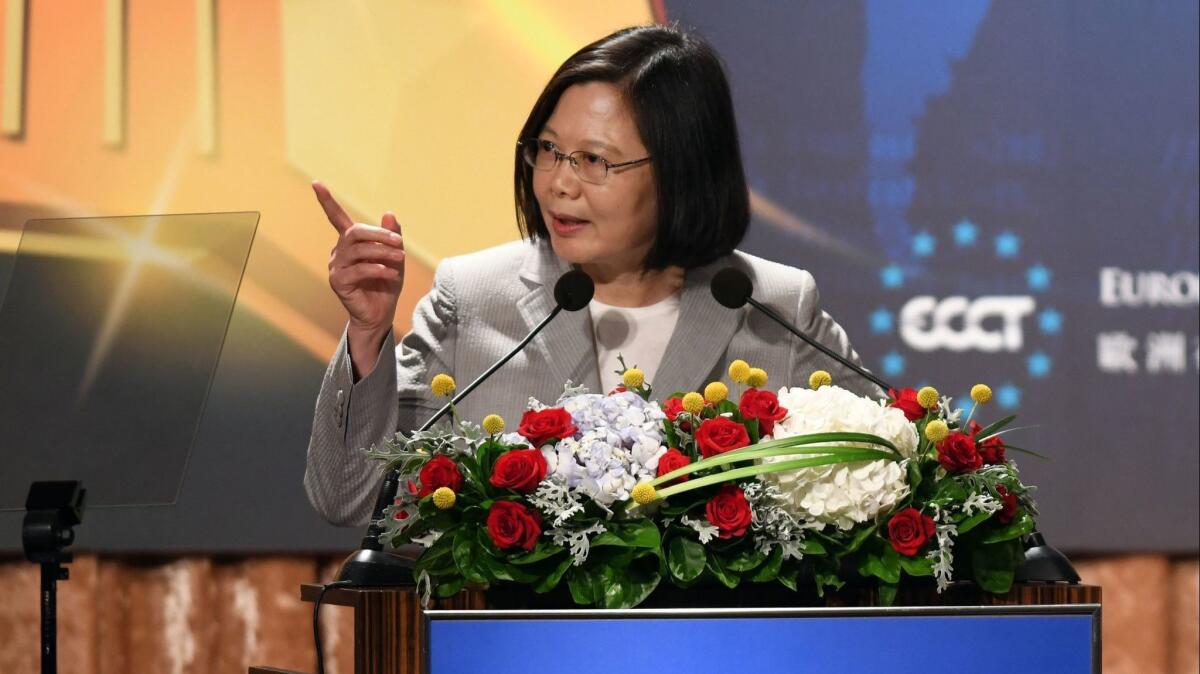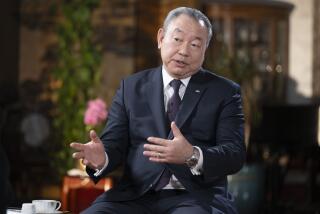Taiwan’s president pledges more security amid concerns about China

Taiwanese President Tsai Ing-wen vowed Sunday to step up security as citizens worry about the growing military and diplomatic strength of China, which resents Tsai for opposing its bid to unify the two sides.
The president gave no details on possible new security measures, but last year she vowed to raise defense spending.
“We will strengthen our work for the whole society’s security and especially look out for these factors from China, whether they affect our Taiwanese society’s security,” Tsai said during an online broadcast on the second anniversary of her inauguration.
Beijing claims sovereignty over self-ruled Taiwan, where the Nationalist government fled after the Chinese civil war of the 1940s. China insists on eventual unification of the two sides under a single China and has not ruled out use of force to unify the two sides.
Government opinion polls show that most Taiwanese prefer autonomy over unification with China.
Tsai rejects Beijing’s idea that both sides belong to one China as a condition for dialogue. The Communist leadership has pressured her with more than a dozen military aircraft flybys and passage of an aircraft carrier in an ocean strait between the two sides that are 100 miles apart.
China maintains the world’s third-most-powerful armed forces after the United States and Russia, according to the database GlobalFirepower.com. The site ranks Taiwan 24th.
China’s power is diplomatic, too. It has persuaded three of Taiwan’s foreign allies to switch allegiance since Tsai took office, according to officials in Taipei.
Tsai may have spoken Sunday in response to public worry about China’s military exercises, said George Hou, assistant mass communications professor at I-Shou University in Taiwan.
Andrew Yang, secretary-general of the Chinese Council of Advanced Policy Studies in Taiwan, said increased military maneuvers by China has concerned people in the region.
“There’s not much she can do about it, so she wants to alert the international community… that China is using a hardline approach,” Yang said.
Tsai’s vow to boost security came in response to a question on the presidential office’s Facebook page asking how she could “get rid of” China’s “channels to infiltrate into Taiwan.” Questions about the relationship with China outnumbered those submitted on any other topic for the online broadcast.
Some in Taiwan question whether Tsai should have stayed home to monitor the island’s defense last month rather than visit a diplomatic ally in Africa, Hou said.
Nearly 60% of Taiwanese disapprove of Tsai’s handling of relations with China, the Taiwan government-funded Central News Agency said.
In October, she vowed to raise defense spending by at least 2% per year, compared with an 8.1% increase announced by China for 2018. This year’s defense allocation in Taiwan comes to $11.07 billion.
The Tsai government says it’s focused too on making weapons domestically, as other countries fear angering China by offering to sell arms. A local defense firm expects to roll out a fighter jet for training purposes next year, and the defense ministry has commissioned a $3.3-billion diesel-electric submarine to be finished in eight years.
Domestic arms developers, active for about 35 years, make up 10% of the military equipment procurement and maintenance budget, said David An, a senior research fellow with the policy incubator Global Taiwan Institute in Washington.
In April, the U.S. government said it would give American contractors licenses to market submarine technology to Taiwan, and the defense ministry spokesman in Taipei said he hopes Washington will offer more technical expertise.
Jennings is a special correspondent.
More to Read
Start your day right
Sign up for Essential California for news, features and recommendations from the L.A. Times and beyond in your inbox six days a week.
You may occasionally receive promotional content from the Los Angeles Times.






